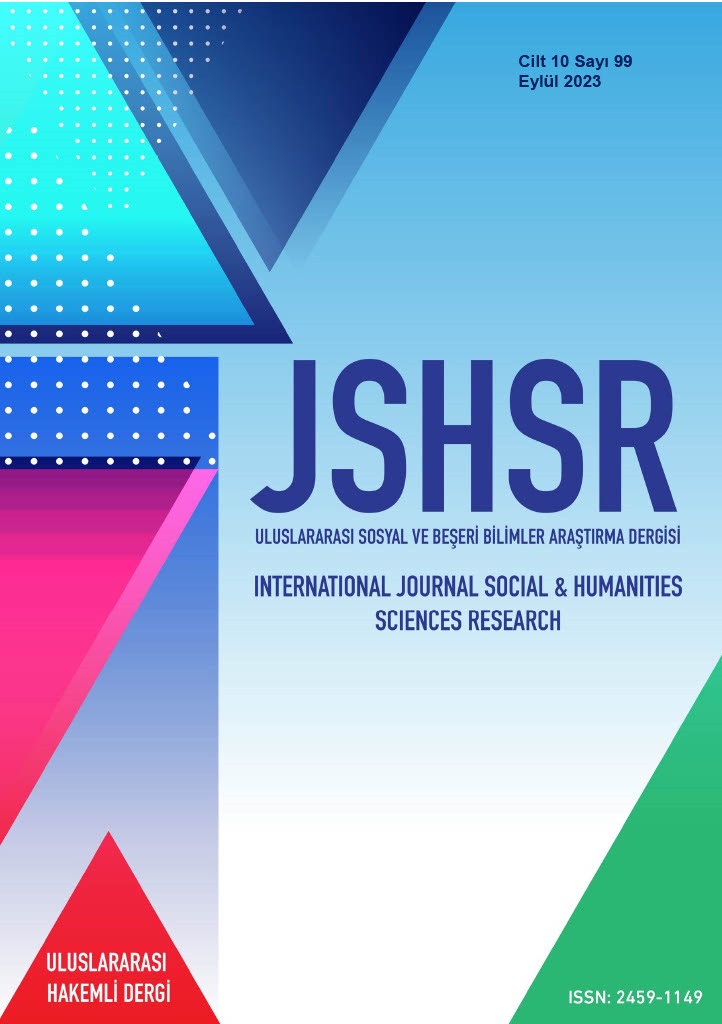A Meta-Analysis Study on the Relationship Between Psychological Capital and Job Satisfaction
DOI:
https://doi.org/10.5281/zenodo.8396838Keywords:
Meta-Analysis, Job Satisfaction, Psychological CapitalAbstract
Psychological capital is defined as a concept that includes individuals' internal resources such as hope, self-efficacy, resilience and optimism. These internal resources increase individuals' abilities to cope with difficulties in business life and strengthen their emotional well-being. Job satisfaction refers to the satisfaction individuals feel about their jobs. Job satisfaction increases motivation, strengthens commitment at work and contributes to the creation of a more positive working environment within the company. When the literature was examined, many studies were found investigating the relationship between psychological capital and job satisfaction. In this context, it was aimed to conduct a meta-analysis by identifying studies that examined the relationship between psychological capital and job satisfaction in depth.
As a result of the research, studies on the relationship between psychological capital and job satisfaction were searched and as a result of the research, 12 studies from ULAKBİM, 56 studies from Google Scholar and 29 studies from YÖK's National Thesis Center were found. Studies that did not have suitable data for analysis were eliminated and 7 studies and 2248 individual data were analyzed through the CMA 3.0 statistical package. By bringing together the data obtained from previously published studies, the relationship between psychological capital and job satisfaction was systematically examined. As a result of the findings, it was determined that there was a positive relationship between psychological capital and job satisfaction.
References
Akgöz, S., Ercan, İ. ve Kan, İ. (2004). Meta-analizi. Uludağ Üniversitesi Tıp Fakültesi Dergisi, 30(2), 107-112.
Alam, M. M. ve Mohammad, J. F. (2010). Level of job satisfaction and ıntent to leave among Malaysian nurses author. Business Intelligence Journal, 3(1),123-137.
Buchanan, D. A. ve A. Bryman (2009). The sage handbook of organizational research methods. Sage Publications.
Cohen, L., Manion, L. ve Morrison, K. (2007). Research methods in education (6. Baskı). Routledge/Taylor & Francis Group.
Cooper, H., Hedges, L. V. ve Valentine, J. C. (2009). The handbook of research synthesis and meta-analysis (2. Baskı). Russell Sage Publication.
Çetin, F. ve Varoğlu, A.K. (2015). Psikolojik sermaye, performans, ayrılma niyeti ve iş doyumu etkileşimi: cinsiyetin düzenleyici rolü. İş ve İnsan Dergisi, 2(2), 105-113.
Ergeneli, A. ve Eryiğit, M. (2001). Öğretim elemanlarının iş tatmini: Ankara’da devlet ve özel üniversite karşılaştırması. H.Ü. İktisadi ve İdari Bilimler Fakültesi Dergisi, 19(2), 159-178.
Peterson, S. J., Luthans F., Avolio, B. J., Walumbwa, F. O. ve Zhangi Z. (2011). Psychological capital and employee performance: a latent growth modeling approach. Personnel Psychology, 64, 427–450.
Roberts, L. M. (2006). Shifting the lens on organizational life: the added value of positive scholarship. Academy of Management Review, 31, 292-305.
Saari L. M. ve Judge, T. A. (2004). Employee attitudes and job satisfaction. Human Resource Management,43(4), 395–407.
Scott, A., Gravelle, H., Simoens, S., Bojke, C. ve Sibbald, B. (2006). Job satisfaction and quitting intentions: A structural model of British general practitioners. British Journal Of Industrial Relations, 44(3), 519-540.
Thomas F.H. ve Feldman D.C. (2008). Organization. (9. Baskı). Mcgraw-Hill.
Vecchio, R. P (1988). Organizational behavior. The Dreyden Press
Downloads
Published
How to Cite
Issue
Section
License
Copyright (c) 2023 INTERNATIONAL JOURNAL OF SOCIAL HUMANITIES SCIENCES RESEARCH

This work is licensed under a Creative Commons Attribution 4.0 International License.


